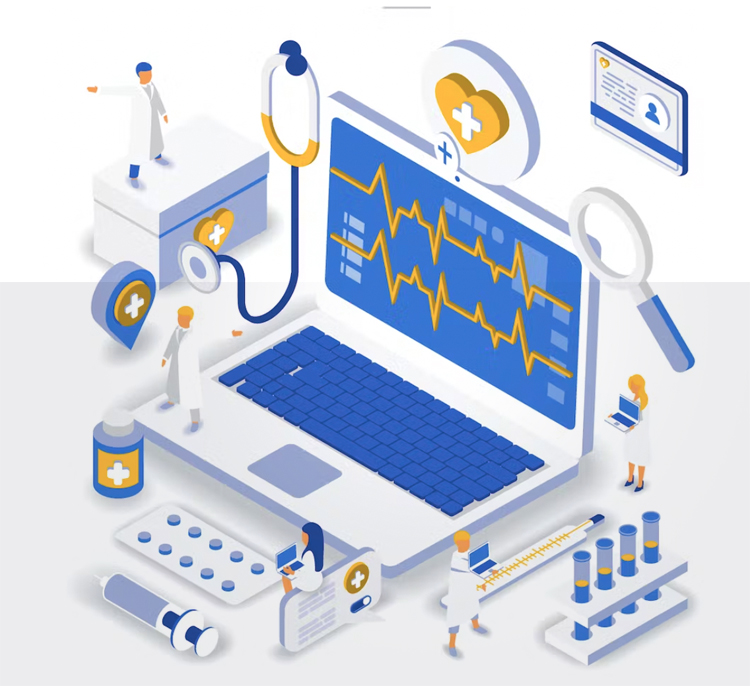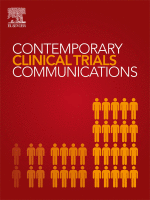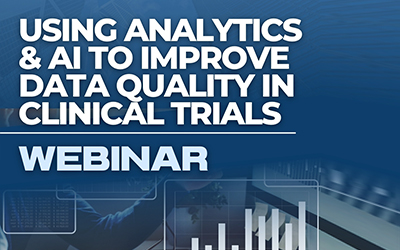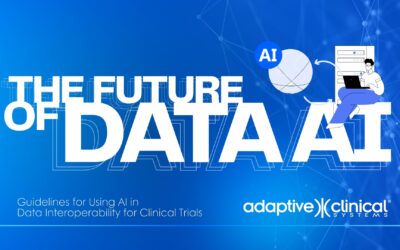Normalizing & Harmonizing
RWE & EHR with Interoperability in Clinical Trials
Powered by the Adaptive eClinical Bus


Adaptive Clinical highlighted as data interoperability partner to improve patient recruitment in recent Optum study utilizing RWD and EHR data to EDC.
In a recently published study, Adaptive Clinical Systems provided data interoperability services for RWD and EHR to our partner, the Optum Digital Research Network (DRN). In the study recently published in Contemporary Clinical Trials Communications, Optum DRN highlights the successful “passive extraction of real-world data from eConsent, electronic patient reported outcomes (ePRO) and electronic health record (EHR) data loaded to an electronic data capture (EDC) system for a multi-center, prospective, observational study in diabetic patients.”
Data flow diagram from study

In the study, the electronic source (eSource) data were copied to a stage database, normalized, transformed, loaded to the study database, and subsequently extracted and transferred to the electronic data capture (EDC) system using the processes described above.
According to the article, the overarching goal of this proof-of-concept study was to demonstrate that Optum DRN could process RWD and verify EHR eSource data as fitting the requirements of Real-World Evidence (RWE) in a prospective observational clinical investigation. As defined in the Draft FDA guidance, a study must “demonstrate that each data source contains the detail and completeness needed to capture the study populations, exposures, key covariates, outcomes of interest, and other important parameters (e.g., timing of exposure, timing of outcome) that are relevant to the study question and design.”
The Outcomes:
● Using EHR data from 3 disparate EHR systems from 3 geographically distant HCOs, Optum has demonstrated that this process could be scaled to more sites for future trials where EHR data are the appropriate source.
● Programmatically extracting EHR data eased the prescreening process by providing lists of potential participants, eased the site’s data entry and query management burden, and made clinical trial data available to the sponsor within 24–48 hours of EHR entry.
● Gathering data and metadata from the source significantly reduced data clarifications and queries as well as the need for Source Data Validation (SDV).

A study must “demonstrate that each data source contains the detail & completeness needed to capture the study populations, exposures, key covariates, outcomes of interest, and other important parameters” (FDA Guidelines)

“The innovative processes deployed in this study has broad applicability for future clinical trials” (Optum DRN)
Optum DRN, also noted that the innovative processes deployed in this study has broad applicability for future clinical trials.
The Benefits:
● Using EHR data to identify potentially eligible participants will ease site screening efforts and increase the ability of sites to report correct potential participant counts to study sponsors, allowing sponsors to select viable sites.
● Using EHR and other eSource data to populate eCRF fields can be performed for approximately 80% of the required clinical data (dependent on the relevant data to be collected), easing the site burden and query resolution effort typical after manual transcription.
Clinical Trial Processes Are Ripe for Disruption
The article notes that the clinical trial processes that have been in place for decades are ripe for disruption via the use of currently available technology. Adaptive Clinical Systems believe that the solutions and processes the Optum DRN has developed can be successfully scaled to any number of sites and EHR systems within the network. In addition, the article notes that programmatically identifying potential participants and removing most data transcription requirements will have a significant impact on research performance as we move forward to implement them for more complex studies.
Support of automation of RWE and EHR was also found in anonymous feedback survey completed by site staff at the end of the study:
● 67% of respondents indicated that the process of extracting data directly from the EHR and loading it to the EDC saved them >50% effort of which half indicated it saved them >75%
● 83% respondents indicated high or extremely high level of confidence in the accuracy and completeness of the EHR data collected during the study
● 100% of respondents indicated moderate to extremely high level of certainty in using a similar data collection and management procedure for an interventional trial in the future

Adaptive Clinical Systems believe that the solutions and processes the Optum DRN has developed can be successfully scaled to any number of sites and EHR systems within the network.
Check out the complete study here: https://doi.org/10.1016/j.conctc.2022.100920
Source: https://www.sciencedirect.com/science/article/pii/S2451865422000370?via%3Dihub
Check out the webinar on the study here:
Adaptive Clinical Systems hosted Optum’s Digital Research Network leadership to share how Optum is modernizing clinical trial design and execution by using Electronic Health Records and Time-saving Technologies. Hear lessons learned from an Optum Observational Study, the study results, and how the Adaptive Clinical supported Optum during the study. Check out the blog and see the replay here. https://adaptive-clinical.com/learning-more-ehr
Ask for a demonstration today.
Blog Posts & Resources
Using Analytics and AI to Improve Data Quality in Clinical Trials
Using Analytics and AI to Improve Data Quality in Clinical Trials. This webinar was held on Tuesday, July 9. A summary of the Q&A and Audience...
The Future of Data
THE FUTUREOF DATAGuidelines for Using AI in Data Interoperability for Clinical TrialsBy Eftim Pop-Lazarov, CTO and Chief AI Product Officer,...
Adaptive Clinical eBook Future of Data AI
Partners Adaptive Clinical shares resources to deliver unmatched solutions to our clients. Experience True Interoperability Through our...



